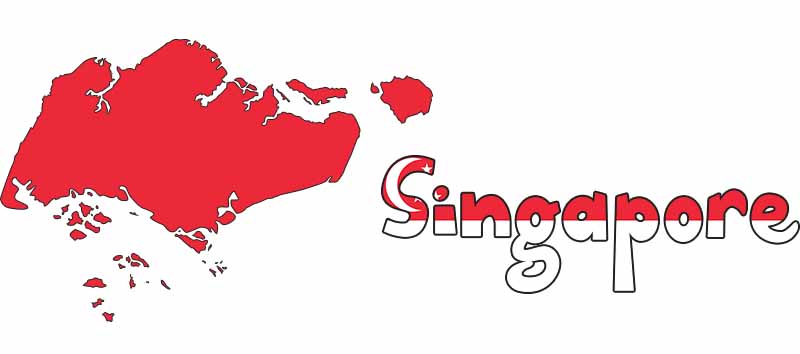The city-state of Singapore is lively, colorful and heavily monitored. In this small nation, Big Brother is everywhere — and that’s why you need a VPN in Singapore.
Your online activity in Singapore is so highly regulated that you may not even recognize the free and open internet a VPN gives you. You’ll be able to unblock websites, browse privately and do so much more.
Here are the top 10 reasons why using a VPN in Singapore is one of the best moves you can make.
Top 10 Reasons Why You Need a VPN While in Singapore
1. Singapore Engages in Heavy Internet Censorship
In Singapore, hundreds of websites are banned by the government. Censored sites include porn sites, LGBT sites, gambling sites and other sites containing “objectionable material.”
Censorship is even worse on government-run networks. These networks ban everything from occult websites to political blogs.
Want to access a censored website in Singapore, no matter what network you’re on? Then use a VPN — its encryption prevents government web filters from working and lets you see any site you want.
2. “Misbehaving” Online Could Get You a Lengthy Jail Sentence
Singapore’s new “fake news” law does a lot more than keep the news accurate. It has broad ramifications for websites that host unapproved content — and the users who post and view it.
Under the law, companies like Facebook and Google must remove content or block users and sites upon the government’s command. And if you’re caught posting or sharing “fake news,” you could face up to five years in prison and a hefty fine.
Using a VPN prevents the government from tracking you down using your IP. It also encrypts your traffic so real-time internet monitors can’t see what you’re posting as you post it.
3. By Law, Tech Companies Answer to the Singaporean Government
The fake news law we just discussed opens up another horrifying opportunity for the government to invade your privacy.
Under the law, the government could require tech companies to keep thorough logs of everything users see and do on their sites. This includes search engines, messaging apps and social media sites.
And even encrypted messaging services like Signal could be required to keep identifiable logs of users and their messages.
If this future becomes reality, you’ll need to encrypt all of your internet traffic with a VPN to keep it out of the government’s sight.
4. Surveillance Is on the Rise in Singapore
In Singapore, the government doesn’t need a warrant to snoop on telecommunications. And it takes full advantage of that.
As far back as 1999, Singapore has spied on its citizens by forcing ISPs to scan customers’ computers and divulge subscriber details. And it can do so even if no crime has been committed: preemptive surveillance is fully allowed in the country.
But there’s one thing you can easily do to resist surveillance: protect your internet traffic by encrypting it with a VPN.
5. Singapore Works with the Five Eyes Surveillance Alliance
Singapore isn’t an official member of the Five Eyes surveillance group, but it still plays a part in the group’s machinations. It lends a hand by helping Five Eyes tap an internet cable that runs through Singapore.
The cable covers a huge swathe of the globe, including Japan, Djibouti, Suex and Germany. Millions of people rely on it for internet access, and thanks to Singapore and Five Eyes, their traffic is now compromised.
If Singapore is willing to tap a cable for Five Eyes, there’s no telling what else it will do in the name of “intelligence.” Your best armor against all possibilities is the military-grade encryption provided by a VPN.
6. Singapore Interprets “Net Neutrality” Loosely
Singapore does have net neutrality laws, but they’re less effective than you’d think.
For starters, the law doesn’t actually prohibit the throttling of internet speeds based on activity. ISPs are allowed to slow your connection down if you’re, say, streaming HD video or gaming.
Technically, they’re only allowed to do so in order to “manage internet traffic.” But since that’s an ISP’s entire job, it has pretty much free reign to prioritize and restrict your traffic as it sees fit.
Hiding your true activities with a VPN prevents your ISP from messing with your speeds and monitoring you online.
7. A VPN Helps You Unblock Streaming Content
Streaming sites like Netflix limit the content you can view based on your IP address. Depending on your location, you could have access to hundreds or even thousands fewer movies and TV shows than you would otherwise.
But a VPN lets you change your location with just a couple of clicks. That way, you can pick the country whose content you’d like to view and stream away!
8. VPNs Protect Your Privacy on Public WiFi
The convenience of public WiFi is appealing to everyone, including hackers. Public WiFi gives hackers a huge pool of potential victims whose data is ripe for interception.
To prevent hackers from stealing your passwords, credit card info, private messages and other personal data, use a VPN on public WiFi. Hackers are no match for a VPN’s powerful encryption.
9. You Can Browse Privately at Work with a VPN
If you use your workplace’s WiFi network for non-business-related tasks, prepare to get chewed out by your IT guy — or worse, your boss. Workplace WiFi networks are typically monitored and often block access to sites like YouTube and Facebook.
But if you use a VPN, network admins won’t be able to see what you’re doing online. And network filters won’t be able to prevent you from viewing the sites you want.
10. A VPN Keeps Your Torrenting Safe and Secure
Torrenting is a risky activity in Singapore, where filesharing isn’t viewed in a positive light. Singaporean torrenters have received demand letters from copyright holders that threaten lawsuits unless they pay thousands of dollars in damages.
But if you mask your real IP address with a VPN, nobody will be able to track you down based on the torrents you download. You’ll be free to torrent what you want without fear of extortion or legal trouble.



